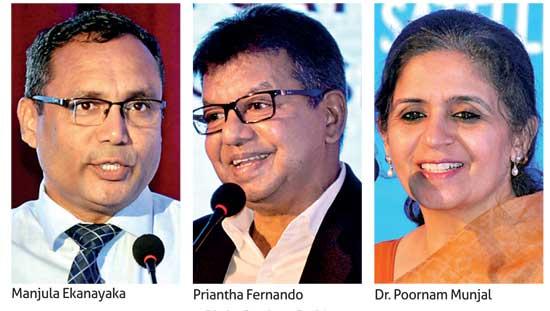Reply To:
Name - Reply Comment
- Implementation of TSA poised to address the information gap regarding tourism sector’s GDP contribution
By Nishel Fernando
Moving towards evidence-based informed tourism policy to better plan the tourism sector with precision in line with sustainable goals, Sri Lanka is finally forging ahead to develop a fully-fledged Tourism Satellite Account (TSA) after gaining much needed impetus from the recently unveiled experimental TSA.
Although, tourism is considered to be a key economic activity that generates income, livelihood and foreign exchange, the void in information in terms of its contribution to the national Gross Domestic Product (GDP) has been a major obstacle to develop this sector with robust polices.
To fill this void, Sri Lanka Tourism Development Authority (SLTDA) initiated a study to develop the country’s first TSA, following international guidelines set by the World Tourism Organization.
Consequently, it came up with an experimental TSA due to the data limitations which hindered the development of a fully-fledged TSA, as per the recommended guidelines.
Unveiling the experimental TSA for Sri Lanka, SLTDA Chairman Priantha Fernando announced that the process is already underway to develop afully-fledged TSA for the country which would be fully mobilised by 2025 to support the country’s target to archive 5 million tourists including 2.5 million high spending tourists
in 2029.
Central Bank Deputy Director Dr. Vipula Wickramarachchi emphasised that the new fully-fledged TSA would enable to better estimate the contribution of tourism to the economy and will be internationally comparable.
TSA serves as a globally acknowledged framework designed to assess both the direct and indirect economic and social ramifications of tourism. It provides essential information to governmental bodies and industry stakeholders, empowering them to make well-informed decisions.
According to key findings of the experimental TSA, 27.6 percent of total inbound tourism expenditure is incurred on food & beverage followed by land transport services, and accommodation services accounting for 22.5 percent and 17.8 percent respectively.
The Department of Census and Statistics (DCS), Deputy Director of the Industries and Construction Statistics Division, Manjula Ekanayake, emphasised that the utilisation of TSA estimates enables the identification of the tourism sector’s comprehensive contribution to GDP. This insight, in turn, facilitates strategic policy formulation aimed at enhancing GDP by optimising earnings from tourism.
Highlighting the policy implications derived from the TSA, he underscored the importance of the government’s ongoing investment in the enhancement of tourism infrastructure and services.
Additionally, he emphasised the need to formulate and implement strategies geared towards attracting high-spending tourists.
Furthermore, he recommended investment in tourism-related training and education initiatives, as well as fostering collaboration with the private sector to promote and implement sustainable tourism practices.
SLTDA’s Fernando highlighted that tourism authorities can enhance their promotion and marketing strategies by prioritising investment based on the returns indicated by this data.
He emphasised the necessity for authorities to analyse data from competing destinations to ensure competitiveness in their product offerings, urging them to innovate and develop niche products accordingly.
Meanwhile, Ekanayake assured that DCS would continue to play a key role in the compilation of TSA while continuing to provide technical assistance to the Ministry of Tourism and Sports in the use of TSA data for policy development and monitoring.
In addition, Fernando, together with UNWTO Consultant Dr. Poonam Munjal, underscored the importance of developing the domestic tourism sector as a crucial buffer during shocks like the Covid-19 pandemic.
Acknowledging the scarcity of critical data in this realm, they expressed anticipation that the TSA would furnish essential information, addressing the gaps and facilitating the growth of this overlooked sector.